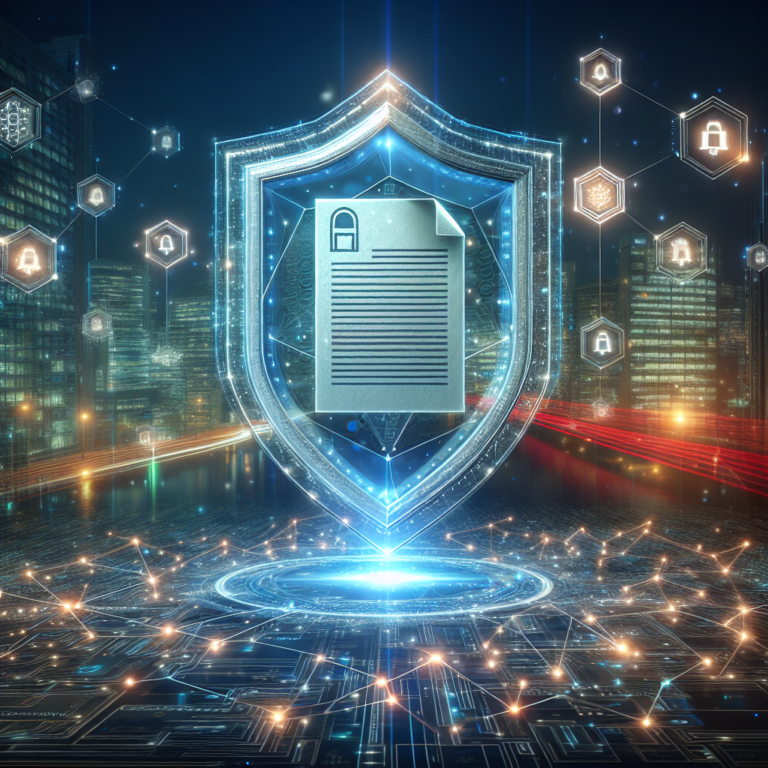Digital Titles and Blockchain: A New Era of Secure Ownership
In the rapidly evolving digital landscape, notions of ownership are undergoing significant transformations. With the rise of blockchain technology, the transition from traditional property titles to digital titles represents a pivotal moment in how assets are owned, verified, and transferred. This paradigm shift offers unprecedented security, transparency, and efficiency, heralding a new era of secure ownership across various sectors, including real estate, intellectual property, and commodities.
Understanding Digital Titles
Digital titles are the electronic equivalent of traditional ownership documents. They leverage digital technology to record and secure ownership rights for various assets, ranging from real estate properties to digital assets such as domain names and intellectual property rights. The transition to digital titles streamlines processes, reduces paperwork, and enhances accessibility, making it easier for individuals and businesses to establish and prove ownership.
However, the true innovation lies in the integration of blockchain technology, which brings a suite of unique advantages to digital titles.
The Role of Blockchain in Ownership
Blockchain is a decentralized, distributed ledger technology that records transactions in a secure, transparent, and immutable manner. Each transaction or record is stored in a "block," and once added to the chain, it cannot be altered or deleted. This safeguards the integrity of the information and addresses longstanding issues of trust and validation in ownership transfers.
-
Security and Transparency: Blockchain provides a secure method for recording ownership. Unlike traditional systems that rely on centralized databases vulnerable to hacking and fraud, blockchain’s decentralized nature means that ownership records are immutable and transparent. Each transaction is visible to all participants on the network, reducing the likelihood of disputes.
-
Efficiency: The traditional process of transferring ownership often involves cumbersome paperwork and lengthy verification processes that can take weeks or even months. Digital titles on a blockchain can be transferred almost instantaneously with the click of a button, significantly reducing time and costs associated with closing deals.
-
Decentralization: Traditional systems often depend on intermediaries, such as banks or notaries, to validate transactions. Blockchain reduces the need for these bridge institutions, thus giving users greater control over their assets. This decentralization of trust empowers individuals and eliminates the potential for intermediary bias or errors.
-
Global Accessibility: With the increasing digitization of the world economy, blockchain enables global access to asset ownership. This opens opportunities for investment and property ownership for individuals who may have been excluded from traditional markets, particularly in developing regions.
- Smart Contracts: Blockchain technology allows for the implementation of smart contracts—automated agreements that execute when preset conditions are met. This feature can streamline transactions further by ensuring that all conditions are set before ownership changes hands, enhancing trust between parties.
Applications Across Sectors
The applications of digital titles and blockchain extend beyond real estate. Consider the impact across various sectors:
-
Real Estate: Digital titles simplify property transactions by allowing buyers and sellers to register titles on a blockchain. For example, jurisdictions like the city of Zug in Switzerland have already implemented such solutions, facilitating property transfers in a fraction of the time.
-
Intellectual Property: Artists and creators can register their works on blockchain, ensuring that they maintain ownership and receive royalties through automated smart contracts whenever their work is used or sold.
-
Automobiles: Vehicle ownership can also be recorded on a blockchain, allowing for quicker sales and reduced instances of title fraud, which historically plagued the automotive industry.
- Collectibles and Digital Assets: The rise of non-fungible tokens (NFTs) showcases how digital titles can represent ownership of unique digital collectibles, artwork, and even virtual real estate in the metaverse.
Challenges and Considerations
While the potential of digital titles and blockchain is immense, several challenges remain. Legal frameworks must evolve to recognize and support blockchain-based ownership structures, ensuring that digital titles are enforceable in traditional courts. Additionally, public awareness and understanding of these technologies will play a critical role in their widespread adoption. Concerns regarding privacy, data protection, and energy consumption associated with blockchain networks must also be addressed.
Conclusion
Digital titles, empowered by blockchain technology, signify a radical transformation in how ownership is managed and maintained. The era of secure ownership is not just about efficiency or speed; it represents a fundamental rethinking of trust, access, and rights in the digital age. As innovators and regulators collaborate to address the remaining challenges, the promise of blockchain can reshape ownership paradigms across the globe, enabling a more secure, equitable, and transparent approach to managing assets. The future is indeed bright for digital titles as we move towards a new frontier of ownership.


